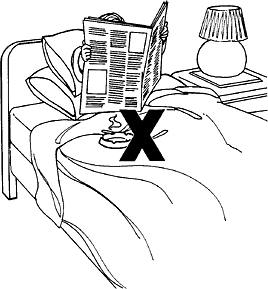Sleep deprivation is one of the causes of poor productivity in the workplace, a tired feeling during the day and not to forget, stress. Humans normally need from seven to nine hours of sleep to feel fully awake during the daytime.
The National Sleep Foundation says when an individual is not able to rest well after 9 p.m., the body will experience a slower survival mode. This is due to the failure of the body to release the hormone melatonin which is beneficial in helping people sleep.
It should be understood that sleeping woes differ from one person to another. As such, it is important to know what may be causing your inability to dose off so you can take the right steps.
[Read more…]
Originally posted on March 6, 2013 @ 11:46 am



